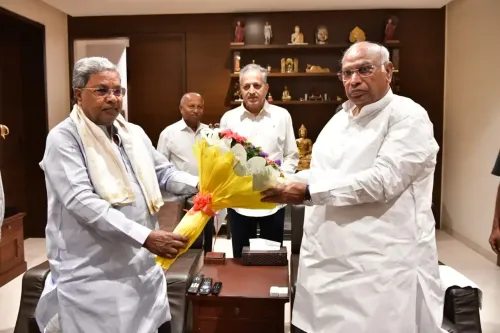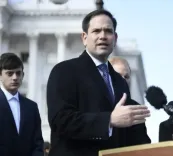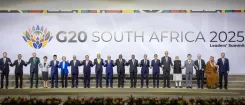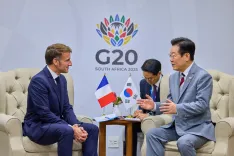Should We Support Negotiators in US Tariff Talks?
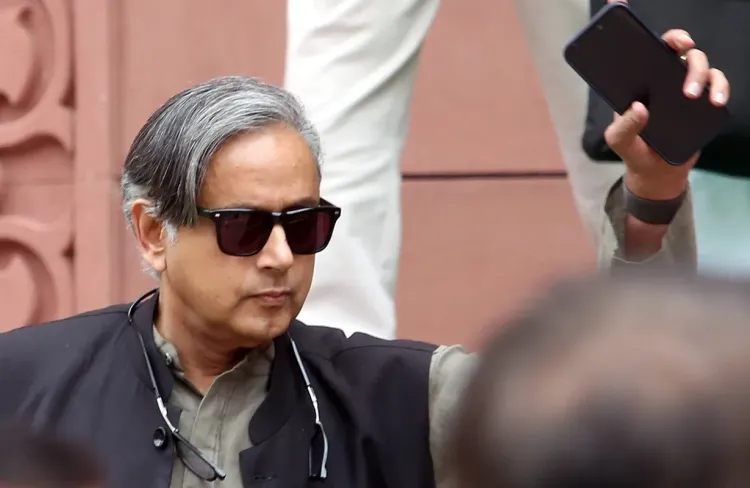
Synopsis
Key Takeaways
- Support for negotiators is crucial amidst US tariff hikes.
- Maintaining export markets in the US is essential.
- India should engage with EU and Japan for trade opportunities.
- Flexibility is key in negotiations.
- National interest must remain a priority.
Mumbai, Aug 2 (NationPress) In light of the challenges posed by recent US tariff increases, Congress MP and former diplomat Shashi Tharoor emphasized on Saturday the necessity to back our negotiators in securing favorable outcomes that safeguard national interests while demonstrating a degree of flexibility.
During the event marking the release of his book ‘Our Living Constitution’, the former Under-Secretary-General of the United Nations stated, “It is crucial to maintain an export market in America. However, we must also engage with other nations and regions where we have export opportunities.”
Tharoor suggested that by negotiating with the EU and Japan, in addition to leveraging the trade agreement with the UK, India could potentially recover some of the losses anticipated from the US.
He cautioned against the risk of losing access to the US export market, asserting, “We cannot afford to lose everything. We must preserve certain key elements. In my view, it is vital to support our negotiators in achieving a beneficial outcome.”
When asked about party leader Rahul Gandhi’s critique of the government regarding US trade discussions, the MP from Thiruvananthapuram stated, “My primary concern is the strategic and economic relationship with the US, which is of great importance to us.”
“We export approximately $90 billion worth of goods to America. Hence, we cannot find ourselves in a situation where we risk losing that,” he explained.
Despite some claims that this represents merely 0.2 percent of our GDP, Tharoor highlighted that in terms of export percentages, the US remains one of our largest markets.
He called for backing Indian negotiators, stating, “We must wish our negotiators strength and courage in negotiating a fair deal for India… negotiations require compromise. Flexibility is essential.”
“However, certain aspects of national interest must remain non-negotiable,” he added.
Earlier this week, Trump announced a 25 percent reciprocal tariff on Indian goods and indicated that India would face additional penalties for purchasing Russian oil.
On Saturday, Prime Minister Narendra Modi reiterated the resilience of the Indian economy amidst the turmoil caused by US tariff hikes, stressing the importance of being vigilant regarding economic interests and promoting ‘swadeshi’ products.
According to Modi, the government is committed to acting in the best interests of the nation.
On Friday, the Ministry of External Affairs (MEA) noted that India and the US share a comprehensive global strategic partnership founded on mutual interests, democratic values, and strong people-to-people connections, having successfully navigated numerous transitions and challenges.

